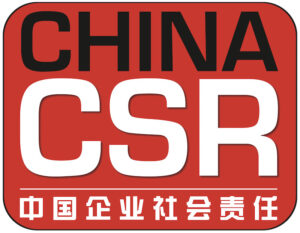Nice, France, May 11, 2016 /ChinaNewswire.com/ - Huawei unveils Cloud Transformation solution at TM Forum and proposed that "clouds" will be the new engine that drives carriers' digital transformation. The cloud-and-network synergy solution brings carriers' existing network advantages into full play so as to help them carry out digital transformation.
The Internet is a massive part of people’s lives and work, bringing today’s individual and enterprise users the urgent need for Internetized ROADS experience (Real-time and on-demand, all-online, DIY and social). Carriers are now under great pressure of increasing competition. However, they are still incompetent in terms of agile innovation and operational efficiency due to a rigid and closed IT infrastructure. In contrast, Internet companies' cloud-based IT architecture is more agile for service innovation.
Huawei believes carriers should prioritize cloudification during digital transformation. Cloudification empowers carriers in two ways
1. Expanding the B2B Cloud Service Market and Enabling Agile Service Innovation
With the Internetization of B2B and the maturing of cloud technologies, many forward-looking carriers such as DT, Telefonica and China Telecom have set their eyes on the government and enterprise cloud service market. Huge customer base, vast network resources and localized services are just some of the advantages carriers would need to exploit in order to gain a head start in the cloud service blue ocean market.
2. Smooth Evolution to Cloudified IT Architecture Improves Operational Efficiency and Reduces Management Costs
Huawei helps carriers evaluate the cloudification maturity of their operational systems in three phases. In the Cloud 1.0 phase (virtualization), software and hardware are decoupled. In the cloud 2.0 phase (cloudification), virtualized resources are centrally managed and scheduled. In the cloud 3.0 phase (native clouds), software can be independently developed, deployed and managed on clouds. Most carriers are evolving from Cloud 1.0 to Cloud 2.0. Their greatest challenge is implementing unified management for heterogeneous virtual resources and datacenters scattered in different places to enable agile service provisioning and boost resource utilization.
Huawei's Cloud Transformation Solution Based on "Cloud-and-Network Synergy" Helps Carriers Build the Customized Networks for Clouds
Based on OpenStack's unified open architecture, the integrated resource pool supports unified management in 4 aspects: unified management for multi-datacenters, cloud and non-cloud resources, heterogeneous virtual platforms, and unified O&M. The solution supports smooth network evolution and allows customers to use a variety of devices from different vendors. The solution can be deployed in a "geographically distributed, logically centralized, resource-sharing and on-demand service" way. It dynamically meets the customized service requirements of both government and industry customers, while adapting to their existing datacenters, significantly boosting resource utilization.
With this solution, networks are reconstructed centered on datacenters and deployed in a hierarchical manner (within datacenters, between datacenters, from datacenters to terminal users). Carriers can offer customized networks to meet customer requirements. Network as a Service (NaaS) increases business revenue, enhances customer loyalty and brings the value of "cloud-and-network synergy" into full play.
Huawei's cloud transformation solution has been successfully deployed in more than 200 cases by global carriers. It has built more than 10 open labs worldwide for joint innovation and fast commercial deployment of new services, thereby helping carriers excel through digital transformation.
Source: Juliet Media

